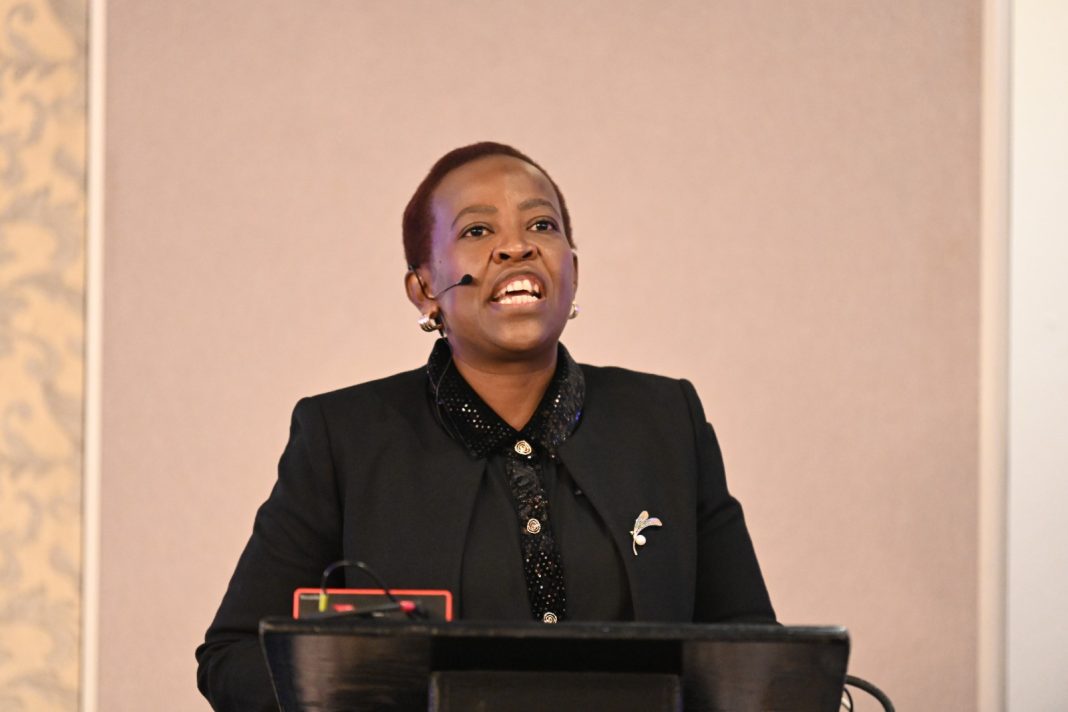By Thapelo Molefe
South Africa cannot afford to drift through another decade of slow growth and worsening inequality, Minister in the Presidency for Planning, Monitoring and Evaluation, Maropene Ramokgopa, warned on Tuesday.
While outlining the national agenda anchored in the Medium-Term Development Plan (MTDP) at the Bureau for Economic Research’s (BER) annual conference in Sandton, Ramokgopa said the country was at an inflection point where practical reforms and shared responsibility must replace “cycles of blame and inaction”.
The government was finalising the MTDP, a strategic framework that would guide South Africa’s development priorities through to 2030. Designed as a focused implementation arm of the broader National Development Plan, the plan would focus on key areas critical to unlocking economic growth and improving state performance in energy, logistics, crime and public sector capacity.
Ramokgopa described the plan as a targeted intervention intended to tackle structural barriers that continued to entrench poverty and unemployment across the country.
“This is the roadmap that will guide implementation of the NDP, in a context that is dramatically different from when it was adopted,” the minister said.
While acknowledging the weight of historical injustices and global economic headwinds, Ramokgopa emphasised that South Africa’s current challenges, ranging from persistent youth unemployment to deteriorating local governance, required urgent and coordinated domestic action.
She was frank about the state’s own shortcomings, particularly at the municipal level, where she said failures often stemmed more from mismanagement and poor planning than from a lack of resources.
“Our biggest obstacle in many instances is not funding, but poor planning, inadequate capacity and a lack of accountability,” she said.
A cornerstone of the MTDP was rebuilding the capability of the state to deliver on its constitutional mandate. This included investing in professionalising the public service, reforming planning and monitoring tools and fostering a results-based culture within government institutions.
The minister also reaffirmed support for existing interventions such as Operation Vulindlela, which seeks to accelerate structural reforms through improved coordination between government departments.
“We need to move beyond a compliance culture toward a culture of performance, delivery and learning,” Ramokgopa noted.
Energy and logistics emerged as top priorities in the reform agenda.
Ramokgopa pointed to progress under the Energy Action Plan, which has seen increased private investment in power generation.
However, she stressed that long-term success would depend on more consistent implementation, improved governance and better alignment between national and municipal spheres.
“The Energy Action Plan has created real momentum. Business and households are investing in new generation capacity, and we are seeing results,” she said.
Similarly, she noted that chronic inefficiencies in South Africa’s ports and freight rail system continued to undercut economic competitiveness and must urgently be addressed.
On crime, particularly violent crime and corruption, Ramokgopa warned that investor confidence and social stability depended heavily on the credibility and capacity of law enforcement agencies.
“The cost of crime to our society and our economy is enormous. We must rebuild the capacity of our criminal justice system and tackle the drivers of crime head-on.”
Youth unemployment remained a pressing social issue, with the minister urging both public and private sectors to create more entry points into the labour market.
While she welcomed the impact of the Presidential Youth Employment Initiative, she said that such programmes alone could not solve the crisis.
“It is a litmus test of our development as a nation whether we can offer young people a stake in our economy and in our future,” she said.
Ramokgopa called for deeper collaboration with business, educational institutions and civil society to invest in scalable, long-term solutions.
In outlining her vision for a democratic developmental state, the minister stressed the need to move away from a compliance-driven approach to governance towards a culture that valued outcomes and citizen experience.
She noted that the Department of Planning, Monitoring and Evaluation was piloting new frameworks and building a national planning architecture that enabled greater coordination across all spheres of government.
“Planning is not just a bureaucratic function. It is the foundation of delivery.’
The minister addressed the importance of data and evidence in policy making, highlighting the need for improved research collaboration between government and academia.
By integrating findings from institutions such as the National Planning Commission and think-tanks like the BER, Ramokgopa argued that the government could make better decisions that were more responsive to real world economic and social conditions.
Throughout her address, Ramokgopa struck a tone of both urgency and collaboration, warning that without a united national effort, the country risked becoming locked in a cycle of stagnation and frustration.
“This is our country. It belongs to all of us. Let us roll up our sleeves and do the work to build the South Africa we all want.
“This is not the time to despair,” she said. “It is the time to act, with purpose, with clarity, and with unity,” she said.
INSIDE POLITICS

